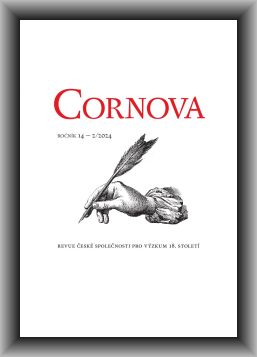The Göttingen Nexus: Károly Koppi
and the Interconnected Worlds
of Modern Historiography in 18th-Century Hungary
The Göttingen Nexus: Károly Koppi
and the Interconnected Worlds
of Modern Historiography in 18th-Century Hungary
Author(s): Piroska BaloghSubject(s): Cultural history, Diplomatic history, History of ideas, Local History / Microhistory, Political history, 18th Century
Published by: AV ČR - Akademie věd České republiky - Ústav pro českou literaturu
Keywords: Göttingen; Hungary; historiography; universal history; Enlightenment; network; correspondence; intellectual history; knowledge circulation
Summary/Abstract: The paper examines six fundamental aspects of the 18th-century Göttingen ideal of scholarship andknowledge, demonstrating how Károly Koppi (1744–1801), a Piarist professor of universal history at theRoyal University of Pest effectively adapted and integrated this paradigm into the Hungarian intellectualcontext. Koppi’s efforts not only established a tradition of teaching universal history through modernmethodologies but also revealed broader sociological implications. His adaptation extended beyond historiographyand pedagogy to include personal career strategies, professional networking, and the cultivationof scholarly ambition and habitus. As a result, Koppi did not merely transfer the Göttingen modelbut actively reshaped it as a mediator. His dual role as a teacher and a knowledge broker solidifiedhis position as a pivotal figure in fostering a modern scientific ethos, which remained influential in late18th-century Hungary.
Journal: Cornova
- Issue Year: 14/2024
- Issue No: 2
- Page Range: 47-76
- Page Count: 29
- Language: English

